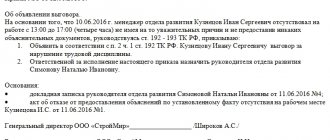Zh. V. Specht author of the article, consultant at Askon
Moral harm is the infliction of moral and physical suffering on an employee by unlawful actions or inaction of the employer, which is compensated to the employee in cash and in amounts agreed upon by the parties to the employment contract.
In the event of a dispute, the fact of causing moral damage to the employee and the amount of compensation for it are determined by the court, regardless of the property damage subject to compensation (Article 237 of the Labor Code of the Russian Federation).
For reference:
According to Art. 151 of the Civil Code of the Russian Federation, moral harm is defined as physical or moral suffering caused to a citizen by actions that violate his personal non-property rights or encroach on intangible benefits belonging to the citizen, as well as in other cases provided for by law.
The Supreme Court understands moral harm as moral or physical suffering caused by actions (inaction) that encroach on intangible benefits belonging to a citizen from birth or by force of law (life, health, personal dignity, business reputation, privacy, personal and family secrets, etc.) .p.), or violating his personal non-property rights (the right to use his name, the right of authorship and other non-property rights in accordance with the laws on the protection of rights to the results of intellectual activity) or violating the property rights of a citizen (clause 2 of the Resolution of the Plenum of the Supreme Court of the Russian Federation dated December 20, 1994 N 10 “Some issues of application of legislation on compensation for moral damage”).
What an employee must comply with
When going to court, the employee must draw up and submit a claim for compensation for moral damage.
The statement of claim is subject to the general requirements specified in Part 2 of Art. 131 and art. 132 of the Code of Civil Procedure of the Russian Federation, namely:
- The name of the court in which the claim is filed.
- Information about the plaintiff: your full name. (patronymic - if available), address of residence, and also, if desired, a contact phone number and email address. If the claim is filed by a representative, similar information about him is also indicated.
- Information about the defendant:
- in relation to a citizen - full name. (patronymic name - if available), place of residence, as well as (if known) the date and place of his birth, place of work and one of the identifiers (for example, SNILS, INN);
- in relation to the organization - name and address, as well as (if known) TIN and OGRN. If desired, you can indicate the telephone, fax, and email address of the respondent.
- Information about what the violation of your rights is, as well as the circumstances on which you base your claims, and evidence supporting these circumstances.
- Request for compensation for moral damage, indicating its amount. You can demand compensation for moral damage in any amount, but the final amount of compensation in each specific case is determined by the court, taking into account the requirements of reasonableness and fairness, depending on the nature and extent of the moral or physical suffering caused to you, the degree of guilt of the harm-doer and other noteworthy circumstances. The degree of moral or physical suffering of the victim is assessed by the court, taking into account the actual circumstances of the infliction of moral harm and the individual characteristics of the victim (clause 2 of Article 1101 of the Civil Code of the Russian Federation; clause 8 of the Resolution of the Plenum of the Supreme Court of the Russian Federation No. 10).
- Information about the actions taken by the party (parties) aimed at reconciliation, if such actions were taken.
- List of documents attached to the statement of claim.
The statement of claim must be printed and signed. Instead of the employee, his representative can sign if the authority to sign the application and submit it to the court is indicated in the power of attorney, which in this case must be attached to the statement of claim (Part 4 of Article 131 of the Code of Civil Procedure of the Russian Federation). The statement of claim can also be filed electronically on the official website of the court if there is a technical possibility for this in court (part 1.1 of article 3 of the Code of Civil Procedure of the Russian Federation; part 4 of article 12 of the Law of June 23, 2016 N 220-FZ).
When submitting an application, a state fee is paid on the basis of paragraphs. 3 p. 1 art. 333.19 of the Tax Code of the Russian Federation, if the employee is not exempt from paying it. Exemption from payment is provided in accordance with the norms of the tax legislation of the Russian Federation (clause 1, clause 10, clause 1, clause 4, clause 2, article 333.36 of the Tax Code of the Russian Federation).
The following documents must also be attached to the statement of claim (Article 132 of the Code of Civil Procedure of the Russian Federation):
- power of attorney or other document certifying the authority of the representative (if there is a representative);
- documents confirming the circumstances on which you base your claim (if any);
- a document confirming the payment of the state duty or the right to receive a benefit for its payment, or a petition for a deferment, installment plan, a reduction in the amount of the state duty or an exemption from its payment;
- calculation of the amount to be recovered, signed by the plaintiff (his representative), with copies for other persons participating in the case;
- notification of delivery or other documents confirming the sending to other persons participating in the case, copies of the statement of claim and documents attached to it, which these persons do not have;
- documents confirming that the party (parties) have taken actions aimed at reconciliation, if such actions have been taken and the relevant documents are available.
A claim for compensation for moral damage is submitted:
- to the magistrate, if simultaneously with a claim of a property nature in the amount of no more than 50,000 rubles. a derivative claim for compensation for moral damage was filed;
- to the district court in other cases, including if the claim also contains other claims that are not subject to evaluation (for example, to refute information discrediting the honor and dignity of a citizen).
As a general rule, the statement of claim is sent to the district court or magistrate at the place of residence (address) of the defendant (Article 28 of the Code of Civil Procedure of the Russian Federation).
How to file a claim for moral damages from an employer
First of all, in the text of the statement of claim, the employee indicates exactly what action (inaction) of the employer in relation to the employee was unlawful. Be it illegal dismissal, discrimination, illegal transfer to another job. Or violation of the dismissal procedure. These circumstances must be proven: for example, there is a court decision on a claim for reinstatement at work, a decision on a complaint to the labor inspectorate, etc.
Secondly, moral harm is the suffering of a person (physical or mental) resulting from a violation of his rights. In labor disputes – labor rights. Describing such suffering is also part of the document. The statement of claim for the recovery of moral damages from the employer must also contain an assessment of compensation in monetary form.
In practice, there are different calculations and evidence of causing moral harm. As a rule, this is a description of a state of stress, possibly depression. Some calculate the harm caused based on the amount of wages. Moral damage is difficult to assess, but it is also difficult for the court. Therefore, a description of the consequences of the employer’s actions for the moral health of the employee is a mandatory element of the statement of claim.
The amount of moral damage will be the main non-property claim, but it does not constitute the cost of the claim. It is advisable to attach documents about work, for example, an employment contract. The employee does not pay state duty.
What an employer should consider
The company compensates for moral damages to the employee in monetary form and in amounts as agreed by the parties to the employment contract.
The agreement on compensation for moral damages to the employee specifies the amount of compensation, the date and procedure for payment. The document must be drawn up in two copies: for the employee and the employer.
- The agreement on compensation for moral damage to an employee (sample of completion) can be viewed in ConsultantPlus
Next, the company issues an order to compensate the employee for moral damages.
- Order on compensation for moral damage to an employee (filling sample) in ConsultantPlus
The company may be exempt from compensation for moral damage; for this it is necessary to prove that the employee suffered physical and/or moral suffering as a result of force majeure or the intent of the employee himself.
Please note: based on the meaning of Art. 237 of the Labor Code of the Russian Federation, the employer, in order to avoid excessive demands on the part of the employee, can provide in the employment contract with the employee a clause in which he will fix a certain amount of compensation for moral damage. In this case, the parties should remember that the court, if there are compelling reasons, has the right to assess compensation for moral damage in a larger amount than specified in the employment contract.
The amount of the penalty depends on the nature of the damage the employee received. The degree will be established in a medical institution, guided, among other things, by Order of the Ministry of Health and Social Development dated February 24, 2005 No. 160 “On determining the severity of health damage in industrial accidents.”
The employer's lawyer, in turn, can request a report from medical workers indicating the severity of the injury. And if, for example, according to this conclusion, the injury is not considered to be a severe industrial injury, then physical and moral suffering will be assessed at a lower rate.
Please note: the legislator has established short limitation periods for labor disputes, and in practice, employees often miss them, which is a kind of salvation for the employer. So, if the dispute is about dismissal, then this period is one month, for disputes about the amount of payments due to the employee - usually one year, and for all other labor disputes - three months (Parts 1, 2 of Article 392 of the Labor Code of the Russian Federation).
For example, if more than 3 years have passed since the accident, the employee will be able to receive compensation not for the entire period before the court hearing, but only for the last 3 years.
What else needs to be taken into account : a bill has been submitted to the State Duma, according to which the Labor Code of the Russian Federation will establish the procedure for filing a claim for compensation for moral damage.
The new provision will establish the possibility for an employee to demand compensation for moral damage:
- simultaneously with a demand for restoration of rights, if the general deadlines for filing a claim are met;
- within 3 months from the date of entry into force of the court decision, which fully or partially restored the rights.
Also from the innovations there will be a rule in which disputes about compensation for moral damage will be submitted only to the courts.
According to labor law: compensation for moral damage caused to an employee
Moral damage according to the Labor Code of the Russian Federation is any moral and physical suffering that a person experiences due to the illegal actions (or inaction) of other persons (in particular the employer) encroaching on his intangible benefits:
- dignity;
- life;
- personal secret;
- business reputation.
The concept of moral harm caused to an employee by unlawful actions in the field of labor law twenty years ago was exotic; such cases were traditionally referred to the sphere of civil legal relations, considering, for example, illegal dismissal together with cases of compensation for harm under a contract.
Moral damage consists of the moral feelings of a person, for example, who is unable to continue his work activity due to illegal dismissal, to lead an active social life, due to the presence of information discrediting his reputation or injury received at work.
Moral damage in the field of labor relations can arise in the presence of circumstances, the range of which is specifically stipulated by law.
According to the rules set out in Article 237 of the Labor Code of the Russian Federation, the moral suffering of an employee during his illegal dismissal must be compensated by the employer in cash in the amount provided for in the employment contract, regardless of compensation for material damage caused by the same dismissal.
If there is no such information in the contract or disputes arise in this regard, compensation for moral damages of a dismissed employee can only be appealed in court. It is important for a judge to determine the degree of moral suffering of a person.
To do this, the judge will take into account:
- the nature of the damage caused, both physically and morally;
- the circumstances under which the damage occurred;
- also the individual characteristics of the employee himself (for example, he is a person with a heart condition and his dismissal resulted in a month-long hospital stay (even after he was reinstated at work).
According to Art. 227 of the Labor Code of the Russian Federation, an industrial accident is an incident as a result of which an employee was injured or injured while performing his work duties. Moreover, this injury resulted in disability, death, or temporary loss of ability to work.
The fact of an accident can be recognized by a court or a commission created specifically to investigate accidents at an enterprise (Article 229 of the Labor Code of the Russian Federation).
The commission recognizes the fact as having occurred due to the fault of the employee himself, for example, due to alcohol intoxication or use of work equipment for personal purposes.
In this case, the injury cannot be recognized as work-related, and the employer will have every right to leave the employee without compensation payments, including for moral damage.
Based on the documents, the employee will be paid temporary disability benefits and other payments from the Social Insurance Fund.
The amount of money for moral suffering is paid in addition to temporary disability benefits and does not replace it.
for occupational disease
An occupational disease is the result of short-term or systematic exposure to harmful production factors in the workplace.
According to Regulation No. 967 “On approval of the Regulations on the investigation and recording of occupational diseases” dated December 15, 2000, all occupational diseases are divided into two types: acute and chronic.
We invite you to familiarize yourself with: Amount of damage for initiating a criminal case: size, level
Just like damage caused as a result of an industrial injury, damage from an occupational disease is compensated by temporary disability benefits or a lump sum insurance payment paid on the basis of sick leave.
In the most tragic cases, family members of the employee have the right to receive compensation for death at work.
In accordance with Art. 1100 of the Civil Code of the Russian Federation, an employee’s right to compensation for mental damage due to an occupational disease at work occurs regardless of the employer’s fault, if the employee worked with a source of increased danger (for example, in a car).
The employer's liability for non-payment or untimely payment of wages to a subordinate is regulated by Articles 362, 419 of the Labor Code of the Russian Federation. A Art. 236 of the Labor Code establishes that the administration of the enterprise must pay interest on the unpaid amount of wages, calculated for each day of delay, not less than 1/300 of the current refinancing rate of the Central Bank of the Russian Federation.
How to justify the mental losses caused by delayed wages? What exactly ?
In this case, moral suffering can be expressed, for example:
- insomnia due to the fact that a person could not buy necessary things and products for his family;
- ruined vacation or weekend;
- a disrupted tour;
- experiences that resulted in documented deterioration in health, etc.
In accordance with Article 349 of the Labor Code of the Russian Federation, military personnel and police officers, in addition to the norms of federal laws regulating their activities (Federal Law of March 28, 1998 N 53-FZ “On Military Duty and Military Service”), are also subject to the norms of labor legislation .
Thus, this category of citizens can also file a claim for compensation for moral suffering caused to them as a result of:
- injuries;
- contusions;
- injuries;
- diseases acquired during service or within 24 months after dismissal.
In accordance with Article 131 of the Code of Civil Procedure of the Russian Federation, a claim for compensation at work consists of several parts:
- introductory: name of the court, full name, address of the plaintiff and the price of the claim (moral damage and material damage);
- motivation: the plaintiff describes the essence of the case (harm to the employee caused by the employer) and lists his claims with references to the legislation;
- pleading: the plaintiff asks the court to satisfy his claims;
- At the end, an additional list of documents is attached to the claim.
Moral injury
We will find the definition of the term in the Resolution of the Plenum of the Supreme Court of the Russian Federation dated December 20, 1994 No. 10 “Some issues of application of legislation on compensation for moral damage” (clause 2). Moral harm is understood as moral or physical suffering caused by actions (inaction) that encroach on intangible benefits belonging to a citizen from birth or by force of law, or that violate the personal non-property or property rights of a citizen. Thus, the concept of moral damage does not apply to legal entities. It only has a business reputation (clause 11 of Article 152 of the Civil Code of the Russian Federation).
A common property of intangible goods is their inalienability. Intangible benefits include life and health, personal dignity, personal integrity, honor and good name, business reputation, inviolability of private life and home, personal and family secrets, freedom of movement, freedom to choose a place of stay and residence (clause 1 of Article 150 of the Civil Code RF).
Moral harm, in particular, may consist of moral feelings in connection with the loss of relatives, the inability to continue an active social life, loss of a job, disclosure of family or medical secrets, dissemination of untrue information discrediting the honor, dignity or business reputation of a citizen, temporary restrictions or deprivation of any rights, physical pain associated with injury, other damage to health, or due to illness suffered as a result of moral suffering. Please note: moral damage is not limited to damage to health.
Compensation for moral damage is provided for by both labor and civil legislation. Let's look at each of these areas.









